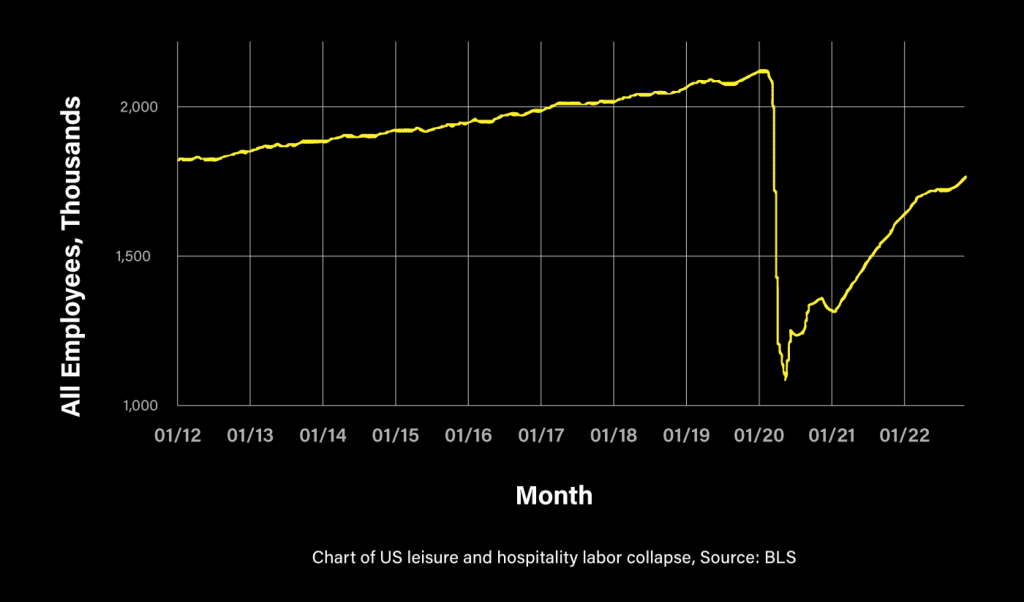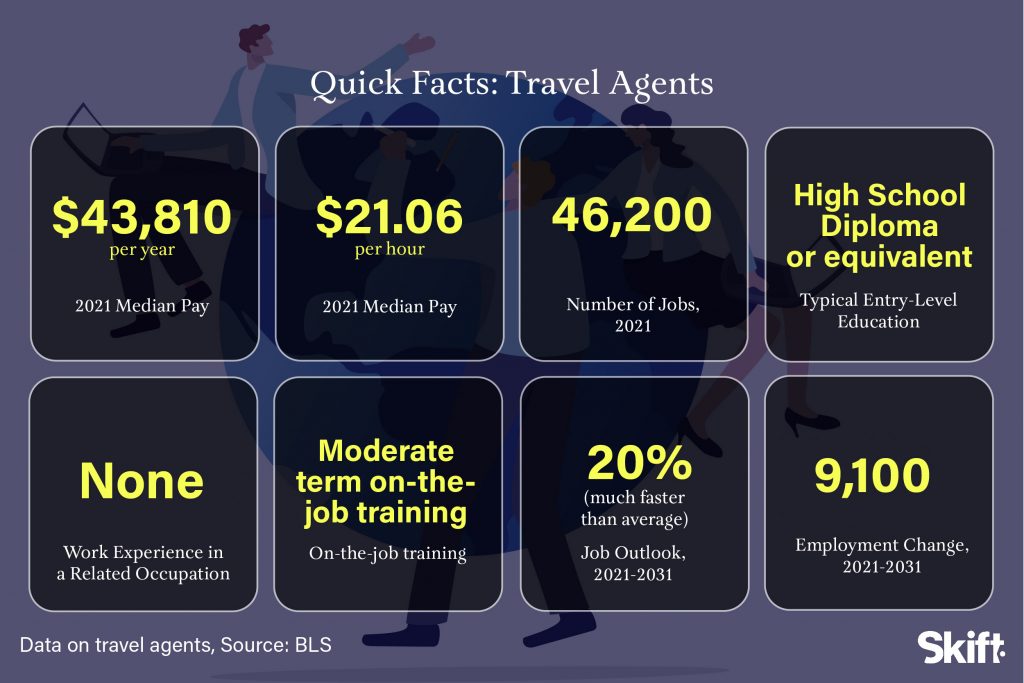The Changing Face of Human Capital in Travel

Skift Take
Travel has a labor problem, but defining it is tricky. Market dynamics vary by location and time. At any given moment, London might be a harder place to hire hotel staff than Dubai, while a tech market crash might suddenly make California a good place for travel companies to source software engineers.
Yet labor turmoil for many jobs in many markets seems to be an on-going problem. Hiring has never been more of a top-of-mind concern among the travel executives we speak to than now, compared to any time in Skift's decade of existence. Demographic and cultural shifts look likely to sustain mismatches between supply and demand for some time.
Travel companies are getting creative to address the challenge. More companies are starting their own academies to groom tomorrow’s workers and more are turning to social media to showcase the opportunities that an industry like travel can bring to recruit a new generation. Better pay, flexible working hours within bands of time, and more rotation among roles and locations are ways some companies are wooing talent.
United Airlines in 2021 began accepting applications to its own flight school, Aviate Academy, with a goal of training 5,000 new pilots — at least half of them women or people of color. United and JPMorgan Chase are together offering about $2.4 million in scholarships to make sure that highly qualified, motivated, eligible applicants won’t be turned away for monetary reasons. The first students began studying in fall 2021.
Hotels have rebounded in their staffing since the pandemic, but not fully. Higher wages have helped. Wages for workers at U.S. hotels rose 15 percent year-over-year through March 2022, said CBRE Hotels Research.
But gaps remain, especially among low-earning workers who find jobs elsewhere. In the U.S., a September 2022 survey of nearly 200 hoteliers found 36 percent of respondents saying they faced a "severe" staffing shortage, with the most critical need in housekeeping, according to the American Hotel & Lodging Association (AHLA). In Spain, the hospitality sector remains the most in need of workers.
Some online platforms aim to help play matchmaker. Check-In Jobs, a Spain-based hospitality-focused job board, lets candidates create profiles showcasing skills to be best matched to employer needs..

Some creative solutions have included new models. Remington Hotels offers people 20-hour working weeks to tap underemployed professionals. Hilton in 2022 partnered with continuing education firm Guild Education to provide U.S. employees with a chance to participate in professional certification programs for areas of study ranging from the culinary arts to data analytics.
Travel agents are seeing a demographic shift that is leading to staffing struggles for skilled workers. In the U.S., about 46,200 people were travel agents as of 2021, according to the Bureau of Labor Statistics. The median age was late 50s, according to a survey by Host Agency Reviews.

To help new talent fill a workforce that may be aging out over time, some companies are taking different steps. Corporate travel giant CWT looks at overlaying base pay with variable benefits such as bonuses, commissions, stock issuance, and profit sharing. Meanwhile, travel technology company Sabre has created a "personal trainer" software program to help people new to the industry learn its ins and outs and take advantage of a growing job opportunity.
The cruise industry has been whiplashed by many countries' pandemic-related visa restrictions on travel, which has crimped its ability to adequately staff some functions on their ships. Lobbyists from the cruise industry are joining forces with those from other sectors to encourage countries to amend visa regulations or staff up their visa approval offices. More flexible visa arrangements could help address vacancies.
Digitalization and automation is requiring travel companies to continuously upskill staff. Hyatt recently gave workers access to Saba Cloud, which offers video-based skill training courses. It also tapped tech company Konverse to build a digital workspace where employees can track tasks and collaborate with other workers.
"We're bringing opportunity to young people who are out of school and out of work into the workforce," said Hyatt CEO Mark Hoplamazian at a Goldman Sachs investor conference.
MGM Resorts turned to LinkedIn learning to offer a similar program. Many other hotel companies use employee-management software like Nivimu to run skill-based development classes. Typsy is a startup offering accredited training courses, and some educational institutions, such as Instituto Technologico Hotelero, also offer supplementary courses online.

Travel companies could do more. "Using human resource analytics in other traditionally high-turnover industries has resulted in a double-digit-percentage reduction in attrition," noted McKinsey & Company in a recent report, nudging the travel industry to adopt the practice.
The tourism sector has been struggling to train new hires coming from other sectors in the finer points of service and destination management.
The travel technology company Amadeus opened in 2021 its first school aimed at helping Europe's tourism sector train the next generation in digital skills in tourism. The Travel Tech School (TTS) by Amadeus operates at the University of Las Palmas de Gran Canaria. It opened two more centers in 2022 Lanzarote and Tenerife, and it plans four centers in 2023 — Majorca, Valencia, Malaga, and Zaragoza — to train 1,000 students, with specialities in neuroassessment systems for soft skills training and using virtual reality to help travel agencies sell experiences.
The will to be creative in addressing labor challenges is there, as you read, but 2023 will start to offer answers to how well these new ideas do in actual execution.




